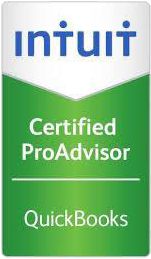Whether you are starting a new job or reassessing your financial situation, a new year often means a fresh start. Why not get the new tax year off to a good start as well?
One way people can do this is by checking their federal income tax withholding using the Tax Withholding Estimator on IRS.gov. This online tool is useful because it helps employees avoid having too much or too little tax withheld from their wages. It also helps self-employed people make accurate estimated tax payments. Having too little withheld can result in an unexpected tax bill or even a penalty at tax time, while having too much withheld results in less money in your pocket.
Taxpayers can use the results from the Tax Withholding Estimator to determine if they should:
- Complete a new Form W-4, Employee's Withholding Allowance Certificate and submit it to their employer.
- Complete a new Form W-4P, Withholding Certificate for Pension or Annuity Payments and submit it to their payer.
- Make an additional or estimated tax payment to the IRS.
The Tax Withholding Estimator asks taxpayers to estimate:
- Their 2021 income.
- The number of children to be claimed for the child tax credit and earned income tax credit.
- Other items that will affect their 2021 taxes.
The Tax Withholding Estimator does not ask for personally identifiable information, such as a name, Social Security number, address, and bank account numbers. Also, the IRS doesn't save or record the information entered in the Estimator.
Before using the Estimator, taxpayers should gather their 2019 tax return, most recent pay stubs, and any income documents. These documents will help taxpayers estimate 2021 income and answer other questions asked during the process.
Most income is taxable, including unemployment compensation, refund interest, and income from the gig economy and virtual currencies. Therefore, taxpayers should also gather any documents from these types of earnings, such as W-2s, Forms 1099 from banks and other payers, and Form 1099-NEC. Forms 1095-A, Health Insurance Marketplace Statement may also be useful for those claiming the premium tax credit.
As a reminder, the Tax Withholding Estimator results will only be as accurate as the information entered by the taxpayer. People with more complex tax situations, including taxpayers who owe alternative minimum tax or certain other taxes, and people with long-term capital gains or qualified dividends, should consult a qualified tax professional.




